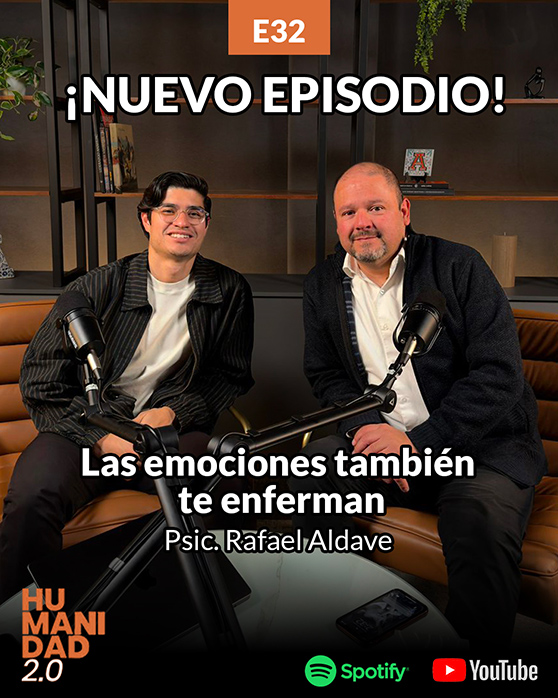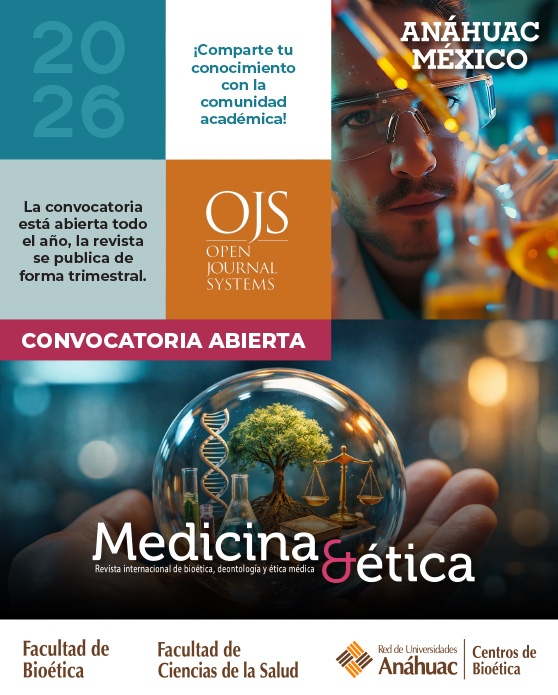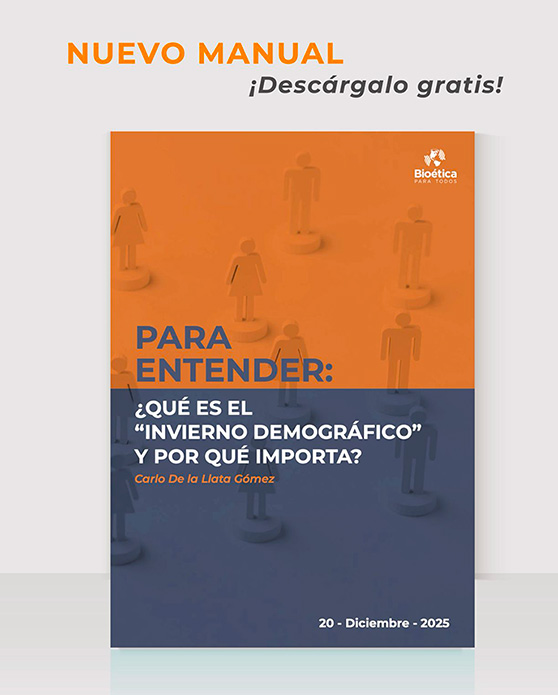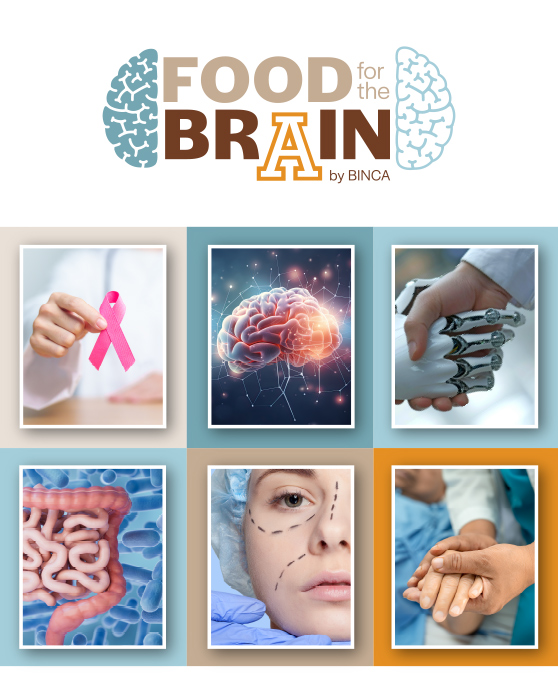
March 5, 2024
Author: Juan Manuel Palomares Cantero
Introduction
In the recent surge of the feminist movement, driven by increasing violence and murders of women in our country, there arises an urgent call to both action and profound reflection. Beyond these grave issues, the celebration of International Women's Day on March 8th prompts a meticulous analysis of achievements and persistent challenges in promoting women's rights globally. Among essential themes, the right to make autonomous decisions on fundamental aspects of life, including reproductive health and societal roles, stands out. This right is recognized as a crucial pillar for gender equality and female empowerment. However, there is a need to frame this freedom of choice within an ethical context that values human life supremely, especially in delicate debates such as abortion and reproductive health. This approach seeks to harmonize respect for personal autonomy with a deep consideration for the supreme value of life, emphasizing the importance of a balanced and compassionate dialogue on these fundamental issues.
Foundation of the Right to Decide:
The foundation of the right to decide, rooted in the autonomy and dignity of women, reflects the need to build equitable societies where they can significantly influence collective development. This right implies a profound ethical responsibility, respecting life in all its forms and seeking balance in sensitive debates such as abortion. Thus, the promotion of reproductive health services, sexual education, and support for responsible motherhood is essential. The inclusion of Banerjee's ideas on sexual and reproductive rights highlights the urgency of policies ensuring the exercise of these rights within a framework of dialogue and mutual respect, advancing towards a society that values both women's autonomy and the supreme value of life.
The freedom to decide must be exercised with profound respect for human life, considering its uniqueness and dignity as the foundation of all rights. This ethical and bioethical principle is crucial, especially in sensitive debates like abortion, where women's rights clash with the unborn's right to life. Addressing this complexity requires sensitivity and compassion, acknowledging the need for an ethical balance that safeguards human dignity at all stages.
At the center of the bioethical debate on reproductive health, we seek a balance between women's autonomy and respect for life in gestation, emphasizing access to safe healthcare services and comprehensive support for vulnerable women. Beyond abortion, the importance of sexual education and responsible motherhood is highlighted, promoting respect for life and human dignity, and exercising individual freedom responsibly and ethically.
In seeking a balance that protects women's autonomy and the value of the conceived life, it is essential to ensure access to safe reproductive health services and provide comprehensive support to pregnant women. This commitment aligns with Guevara's ideas, who emphasizes sexual and reproductive rights as fundamental.
Highlighting the relevance of international agreements such as the Tehran Conference and the ICPD (International Conference on Population and Development) in Cairo is essential for focusing on reproductive health and sexual rights from a human rights perspective, emphasizing the need for safe sexual life, adequate sexual education, and maternal care. This approach promotes respect for life and human dignity, essential for building fairer societies. The decision on these rights must be made responsibly, through dialogue and education, to ensure the full exercise of women's rights without compromising human life.
Reaffirming sexual and reproductive rights as essential human rights is key to empowering women, enabling them to actively and consciously participate in decisions affecting their health and life. This premise underscores the need for a comprehensive approach that balances personal autonomy with ethical responsibility towards life, promoting access to health services and the importance of comprehensive sexual education. Advancing toward this ideal involves a collective commitment to dialogue, comprehensive education, and inclusive policies, ensuring that all women fully exercise their rights within a framework of mutual respect and human dignity, contributing to the construction of a fairer and more equitable society.
By prioritizing the supreme value of human life over the right to decide, it is essential to recognize that personal autonomy, while fundamental, finds its limit when conflicting with life protection. This bioethical approach does not deny the importance of the dignity and individual freedom of women but proposes a profound reflection on how our decisions impact the existence of other human beings. In the field of reproductive health and sexual rights, this means promoting policies and practices that balance the need for women's autonomy with unconditional respect for life, from its conception. Such a balance requires promoting widespread access to comprehensive sexual education and reproductive health services that respect both women's choices and life in gestation, navigating carefully between the right to decide and the ethics of life.
The discussion on the right to decide, especially on sensitive issues such as abortion, should be approached with a perspective that values life as the most precious and non-negotiable good. Recognizing the complexity of these situations implies adopting a compassionate and equitable approach that seeks solutions honoring both women's autonomy and the fundamental principle of respecting life. This not only involves ensuring access to safe and accessible health services but also providing comprehensive support to women in vulnerable situations, ensuring that decisions about their bodies and futures are made in a context of support, information, and respect for life at all stages. This commitment to life defines a bioethical framework in which the freedom to decide is exercised consciously and responsibly, emphasizing the importance of protecting the most vulnerable lives in our society.
Habeas corpus
At the forefront of human rights protection, the habeas corpus figure emerges in defense of freedom, physical integrity, and life. This proactive legal tool reflects a commitment to anticipate rights violations, drawing a parallel with the need for preventive policies in the right to decide. Anticipation and protection are principles that should guide the formulation of laws and policies safeguarding personal autonomy and respect for life, from design to implementation.
The application of habeas corpus offers a valuable perspective on how prevention can be a guiding principle in protecting fundamental rights. By integrating this idea into the debate on the right to decide and the valuation of life, the importance of a preventive approach is highlighted. This not only involves ensuring access to safe and quality reproductive health services but also promoting comprehensive sexual education that empowers individuals to make informed decisions in a framework of mutual respect and ethical consideration for all forms of life.
Thus, the lesson of habeas corpus translates into a call to action for policymakers and society at large: to build an environment where the right to decide, along with life protection, is a central axis of our legal and social structures. This approach not only strengthens individual autonomy and human dignity but also promotes a culture of prevention and respect that transcends legal boundaries, rooting itself in the bioethical values of our society.
Best Interest of the Child
Integrating the principle of the best interest of the child into the discussion on the right to decide and the supreme value of human life provides a perspective that harmonizes the protection of fundamental rights with respect for life. This principle, internationally recognized, obliges to prioritize the well-being and rights of children in all decisions and policies that affect them. In the context of reproductive health and sexual rights, this approach emphasizes the importance of ensuring that all actions and decisions promote the best for the child, even before their birth.
When weighing the right to decide from the perspective of the child's best interest, it is recognized that decisions regarding reproductive health not only affect the woman but also the unborn child. This principle reinforces the idea that the right to decide must be exercised with a deep ethical consideration that takes into account the protection of life and the well-being of the most vulnerable. The implementation of this principle in medical policies and practices emphasizes the responsibility to safeguard the fundamental rights of the child, balancing women's autonomy with the duty to protect life at all stages.
Incorporating the principle of the best interest of the child into debates on autonomy reinforces a comprehensive bioethical approach. This principle encourages considering children's well-being in decisions, promoting care from conception. It highlights the importance of policies reflecting a commitment to life and human well-being, fostering a profound reflection on the value that our societies attribute to the protection and dignity of each being from their beginnings.
Aristotelian Golden Mean
Addressing the right to decide and the supreme value of human life from the Aristotelian principle of the Golden Mean provides an ethical guide to navigate the complex balance between personal autonomy and life protection. Aristotle teaches that virtue lies in balance between two extremes, suggesting that, in the debate on sensitive issues like abortion, a middle ground should be sought that respects both a woman's right to decide about her body and the intrinsic importance of human life.
Adopting the principle of the Golden Mean in debates on reproductive rights emphasizes the need for a reflective and balanced analysis of the values at stake. This approach promotes considering the unique circumstances and ethical impacts of decisions, seeking to harmonize rights and responsibilities towards the respect of human dignity. It encourages an inclusive dialogue, essential for addressing the intersection between individual rights and collective well-being, aiming towards socially responsible and bioethically grounded solutions.
From a humanistic perspective, the debate on the right to decide and the supreme value of human life invites us to recognize and honor the intrinsic dignity of every human being. This approach commits us to seek an ethical balance that respects both individual autonomy and life protection, promoting common well-being in a society grounded in mutual respect, solidarity, and shared responsibility. In addressing these complex issues, humanism challenges us to build a more compassionate and just future for all.
Conclusions
The autonomy of women to decide must be carefully balanced with respect for human life, recognizing the bioethical responsibility in making decisions about reproductive health.
Society should prioritize the protection of the most vulnerable, including the unborn, by implementing policies that harmonize reproductive rights with the value of life.
Applying the principle of the Golden Mean to find a bioethical balance in sensitive debates, promoting an inclusive and compassionate dialogue.
From a humanistic perspective, it is crucial to promote respect for the dignity of all and seek solutions that benefit common well-being, respecting both individual autonomy and life protection.
Juan Manuel Palomares Cantero is a lawyer, master's and doctorate in Bioethics from the Anahuac University, Mexico. He was the director of Human Capital, director, and general coordinator at the Faculty of Bioethics. Currently, he works as a researcher at the Academic Directorate of Integral Formation at the same University. He is a member of the National Mexican Academy of Bioethics and the Latin American and Caribbean Federation of Bioethics Institutions.
The opinions shared in this blog are the total responsibility of their respective authors and do not necessarily represent a unanimous opinion of the seminars, nor do they reflect an official position on the part of CADEBI. We value and encourage any comments, responses, or constructive criticism you may wish to share.
i Banerjee, D., & Rao, T. S. (2021). Sexual and Reproductive Rights: Time to Ring the Bell? Journal of Psychosexual Health, 3(4), 301-304.
ii Guevara-Ríos, E. (2020). Derechos sexuales y derechos reproductivos. Revista Peruana de investigación materno perinatal, 9(1), 7-8.
iii Barcenas Barajas, K. (2021). Género y sexualidad en disputa: desigualdades en el derecho a decidir sobre el propio cuerpo desde el campo médico. Universidad Nacional Autónoma de México, Instituto de Investigaciones Sociales.
iv Ramón Fernández, F. (2020). El derecho a la vida ya la protección de la salud en las medidas adoptadas en España como consecuencia de la covid-19: Una reflexión sobre su oportunidad. Estudios constitucionales, 18(2), 51-86. https://dialnet.unirioja.es/servlet/articulo?codigo=7408558
v Toral, P. F. A., Álvarez, J. C. E., Avila, D. A. O., & Zurita, I. N. (2020). La aplicación de los derechos humanos en el interés superior del niño. Iustitia Socialis: Revista Arbitrada de Ciencias Jurídicas y Criminalísticas, 5(8), 624-644.
vi Correa, A. C. (2020). Ética y sabiduría práctica: las exigencias retóricas del discurso político en Platón y Aristóteles. Revista institucional| UPB, 59(159), 285-300.
Más información:
Centro Anáhuac de Desarrollo Estratégico en Bioética (CADEBI)
Dr. David Cerdio Domínguez
david.cerdio@anahuac.mx






